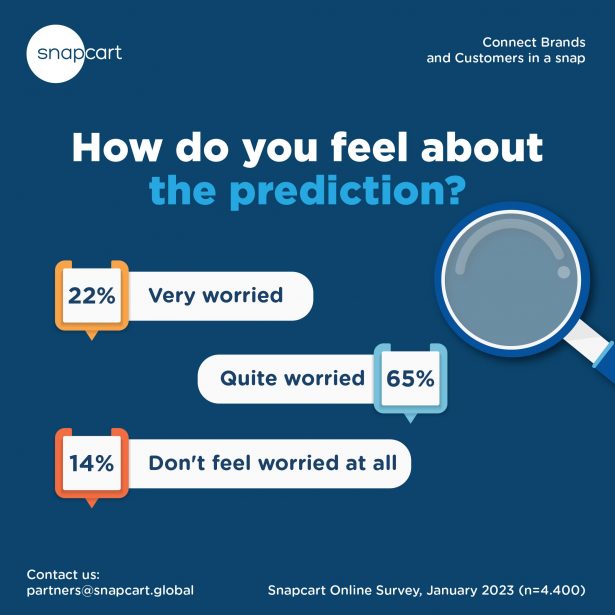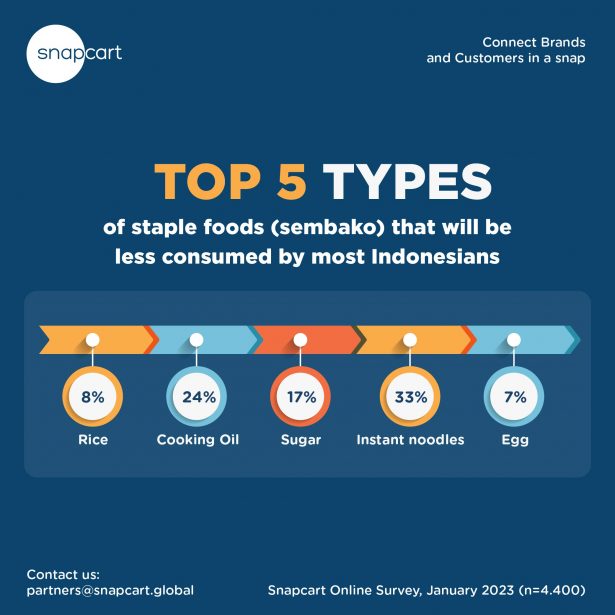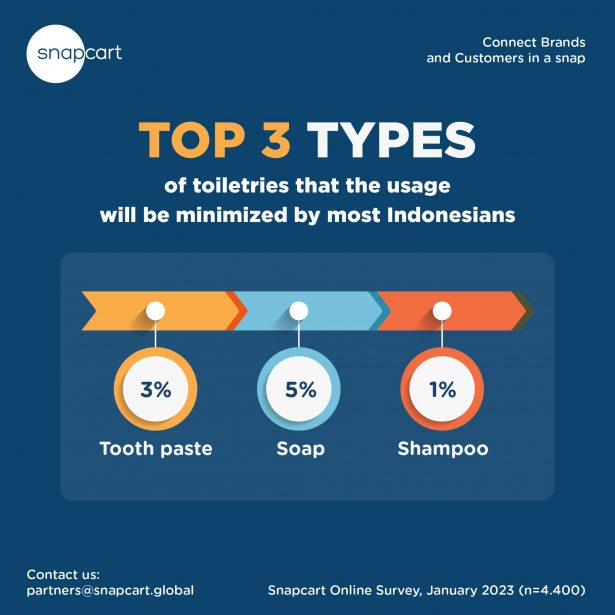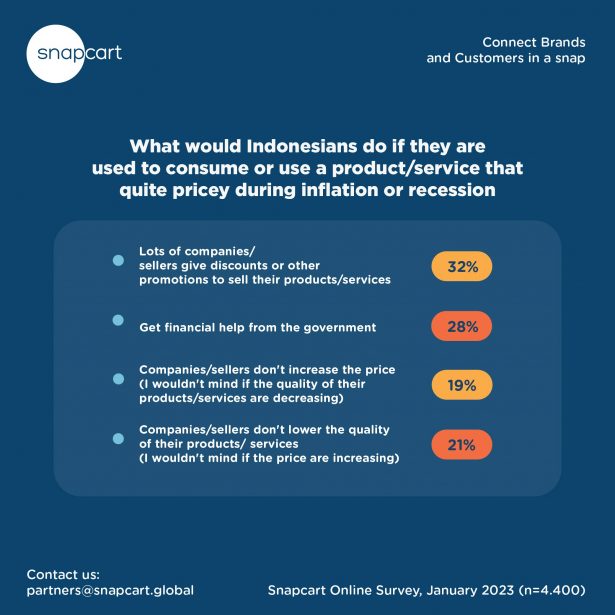Some economists from various countries announced that the world will slip into recession in 2023 [1]. President of Indonesia, Joko Widodo even told the public that the International Monetary Fund (IMF) has predicted that 70 countries are very likely to experience the recession in this year [2].
However, despite the fact that the World Economic Forum (WEF) has reported that developing countries have the potential to face further economic pressures and trade off in 2023 [3], some economists said Indonesia’s economy is still stable and it tends to be safe from the threat of the upcoming global recession [4].
Nevertheless, some ministers in Indonesia like Sri Mulyani (The Minister of Finance) and Airlangga Hartarto (Coordinating Minister for Economic Affairs) still warn people in Indonesia to be cautious of the potential recession this year because IMF predict that the global economy will grow lower in 2023 rather than the economic growth in 2022 [5], and the trade growth which this year will expand by 3,5% next year is estimated to be only 1% [6].
Thus, in order to find out how Indonesians would react and prepare to this financial prediction, Snapcart conducted a study with 4.400 samples, and here are the results.

According to our research, we figured out that even though some people in Indonesia haven’t heard about the 2023 potential recession, but 65% Indonesians have already known it, and majority of them are aware of the risks and even prepare for it, as you can see on the infographic above and on the graphic below.

Furthermore, when we asked our respondents about their preparation to face the potential recession, majority of them are starting to save money (30%) and limiting their spending (28%).
Meanwhile those who want to invest (19%) confessed that their most favorite way to do it is by buying gold (31%), followed by mutual fund (17%), stocks (17%), deposito (15%), as represented on the infographic.
Priorities
Whilst people in other countries prefer to cook rather than buying food from restaurants during recession [7], but our study found out that only 20% of Indonesians who would like to eat the food that they made frequently, and most of them would still choose to dine out or order food during recession. You can see the detail of the data on the infographic above.
On the other hand, some of our respondents also confessed that they will limit their usage toward daily/primary products if recession or inflation happens. And surprisingly, 82% of them are going to consume less staple foods (sembako) rather than limiting the usage of toiletries.
Moreover, we also found out certain types of primary products that are needed most by Indonesians. For example, in limiting those daily products, only 7% who will eat less eggs, and 8% will consume rice less. Meanwhile for the toiletries, only 1% who will use less ‘dose’ of shampoo. You can see the detail on the graphics below.


As the data shows us that body & hair wash products looks so important for Indonesians, on the other hand, our respondents also confessed that if the recession happens, most of them (40%) would still buy beauty products (e.g: skin care, cosmetics, etc) rather than any other non-primary products. These results might indicate that appearance is the main key for people in Indonesia to face the day.
Loyalty
Some research found out that during recession in other countries, a lot of people are usually switching to cheaper brands during recession [8]. However in Indonesia, majority of customers (56%) would still consume their favourite brands, even though they are quite expensive. But during recession, they are planning to limit their consumption/usage toward the product/service of the brands.
On the other side, we also figured out the same fact with our previous research, where Indonesian people still choose e-commerce as one of their favorite places to shop [9] in any conditions. Yet the difference is, if the recession happens, Indonesians would shop at traditional markets (31%) and small shops near their house (22%) first before they shop at e-commerce (14%), while only small number of people who would choose to shop at other places/platforms, as shown on the infographic above.
The power of promotions
Everybody loves cheaper price. And promoted products provide this opportunity.
Nonetheless, hence the majority of people are planning to save money for the recession, but our research found out that only 13% of Indonesians who would not buy products with massive promotion at all. While majority of them will buy the promoted products, mostly if they think they need them (64%).
Furthermore, among many forms of promotion, we also found out that during bad financial conditions, Indonesian consumers are more likely to buy products with discount (48%), cashback (22%), and free bonus items (14%) other than any types of promotions which are represented on the infographic above.
Hopes
During inflation or recession, prices are highly increasing, and it is one of the hardest times for many people.
We asked our respondents what they want the most if the potential inflation or recession happens, as predicted by many economists. And most of them answered that rather than companies/sellers don’t increase the price of the products, they are more hoping that lots of companies/sellers would conduct promotions like discounts, etc (32%) and don’t lower the quality of their products (they wouldn’t even mind if the price increases). You can see the detail of their answers on the graphic below.

Interested to know better about customers’ behavior and market trends? Contact us at partners@snapcart.global .
Sources:
[4] https://kumparan.com/kumparanbisnis/ekonom-kemungkinan-indonesia-terkena-resesi-kecil-1zeKeNug5qK/2
[7] https://insights.som.yale.edu/insights/how-does-inflation-change-consumer-behavior
[8] https://www.channable.com/blog/inflation-consumer-behavior





